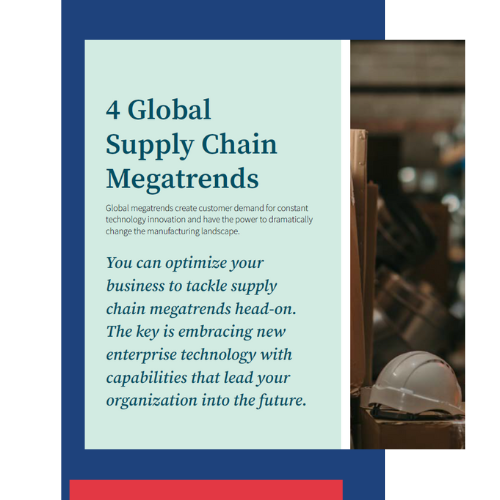ERP vs MRP: Key Differences, Benefits & How to Make the Right Choice
Are you looking for the most cost-effective and efficient solution between ERP vs MRP for your manufacturing company? When it comes to choosing between a standalone MRP system or a full-form ERP with an integrated MRP module, understanding the differences and benefits is essential for making the right decision for your business.
Read our article to discover the best solution to optimize manufacturing resource planning and simplify operation management.
Key Differences Between ERP and MRP Systems
ERP and MRP Meaning
- Material Requirements Planning (MRP) is a planning tool for raw materials and other production resources. It works by calculating net requirements based on real-time inventory levels, gross requirements, and outstanding orders.
- An Enterprise Resource Planning (ERP System) is a comprehensive software solution that integrates various modules, including, but not limited to MRP.
ERP vs MRP: Business Goals of These Systems
The purpose of the material planning process in production resource planning is to ensure that the right products are made at the right time and in sufficient quantities. MRP systems thus serve to respect production capacity requirements, and eliminate the risks of excess inventory, waste, and stockouts.
By linking gross requirements to stock levels, the MRP software ensures smooth supply chain management, allowing for greater accuracy of the production plan and schedule.
As for ERP software, its role goes beyond production processes. It supports other critical manufacturing processes such as financial management, sales, human resources, supply chain, customer relations, and more.

A standalone MRP business system easily handles production planning needs but does not go beyond its scope of operations. This type of software is ideal for optimizing inventory control and lead times but offers no visibility into your manufacturing company’s other processes.
ERP is essential for centralizing your data, facilitating decision-making, and better managing your operations.
With us,
3 Benefits of ERP Software with an Integrated MRP Solution
Discover the benefits of MRP in Epicor Kinetic, an ERP solution designed for the manufacturing industry. Find out how it integrates a powerful MRP system to master production schedules and production planning for manufacturers.
Aligning Production with Customer Demand
Epicor MRP in Kinetic allows better materials management and adjustment of the production schedule based on customers’ anticipated needs. This optimization of demand management leads to greater responsiveness to your customers’ needs.
Accurate and Reliable Communications
Some industries require a high level of component accuracy. Epicor MRP software provides your customers with detailed product information, such as the status of parts or finished products and supporting documentation.
Costs Reduction
The Epicor MRP system in Kinetic ensures efficient inventory management and requirements planning, reducing waste and stockouts.

ERP vs MRP: How to Make the Right Choice for Your Manufacturing Business
Still hesitating between MRP or ERP? Here are a few questions to ask yourself before making an investment:
- Is your need limited to the production planning process, or do you need a comprehensive, integrated solution?
- Do you anticipate rapid growth requiring flexible tools to keep up with your evolution over the long term?
If you answered yes to any of these questions, your needs likely extend beyond a simple MRP system. By combining MRP II capabilities with a comprehensive ERP system, Epicor Kinetic provides a unique overview and optimizes coordination between different business functions.
Epicor Kinetic ERP & MRP:
An Essential Complement for Manufacturers
Whether you choose standalone cloud MRP software or a complete ERP system, the importance of MRP processes is undeniable. Material resource planning is crucial for efficient production planning, but an ERP solution like Epicor Kinetic maximizes this efficiency while addressing other critical needs of your manufacturing business.
Ready to simplify your operations management with Epicor Kinetic?
FAQ — MRP & Production Planning
- Inventory Management
- Manufacturing requirements planning
- Bill of Materials (BOM) Calculation
- Order tracking
Gross requirements refer to the total forecasted demand. Net requirements are calculated by subtracting available stocks and open orders.
- Identifying gross requirements
- Checking available stock levels
- Calculating net requirements
- Planning orders based on lead times
Let’s take the automotive industry as an example. This sector requires precise planning to ensure optimal manufacturing and reasonable delivery times. Therefore, an automotive MRP system is necessary.
An automotive manufacturer might opt for a standalone MRP module to produce its most complex parts.
Another option would be to choose an automotive ERP software designed to meet all their business needs, from material production schedule to demand planning, including other functions such as financial, sales or HR.

